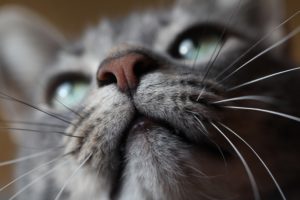
Sooner or later your beloved cat will grow old and undergo physical changes. This usually occurs between seven and 10 years. Still, some have been fortunate enough to stop big changes until about 12 years ago. However, when the time comes, you will need to make some changes to the way you care for your pet. Read some helpful tips for caring for older cats.
Most owners take their cats to the vet for an annual exam. Older cats need to be seen by a veterinarian more often than their younger cats because of the increased risk of problems. It is best to schedule a wellness exam every six months.

You will also need to slightly change the way you feed your older cat. Seniors who become less active but still eat the same amount of calories are likely to become overweight. Obesity is particularly acute in seniors, so a vet-approved diet would definitely be appropriate.
When caring for older cats, always have access to potable water. Dehydration is easier to detect as cats get older. Their organs also do not respond well to chronic dehydration. The kidneys tend to cause the most problems for seniors, and frequent dehydration will certainly not benefit these vital organs.

Like humans, arthritis becomes a problem in older cats. When arthritis develops, your cat will not be as physically active as it used to be. Don’t be surprised if it stops climbing stairs or jumps on the windowsill. Arthritic cats may have trouble accessing their litter boxes. If you notice that your problem is this, you can fit it by buying a shorter box or even putting a set of stairs next to it.
Dental care is important for cats of all ages. It is becoming more and more important for older cats. The risk of dental disease only increases with age. This disease can cause enough pain to keep your cat from eating.

Your cat can also lose energy to provide proper care. You do not want it to create a dry or too dirty coat. Sighting can also become a problem if you have a long-haired breed. You can help your older cat to scrape it daily or at least several times a week.
Changes in your older cat are not just physical. It can also show mental problems, much like the elderly. It may occasionally wander or even appear disturbed. Some cats become much louder and too embarrassed for their owners. When caring for older cats, keep in mind that they may not be responsive to change. Try to keep everything in the household the same as they do with their usual routines.
There are a number of diseases common to older cats. Hypertension, kidney problems, hyperthyroidism and diabetes are some of the most common. Different types of cancers are also more prevalent in the elderly cat.
As the risk of these diseases increases, it is important to monitor your cat closely for changes. If you notice something unusual, you may want to let your doctor tell you about it. Biannual tests are expected to infect early with any disease that will hopefully facilitate the fight.
